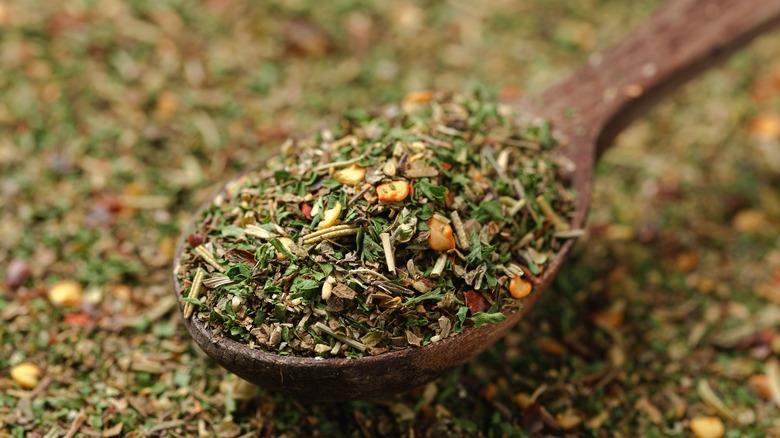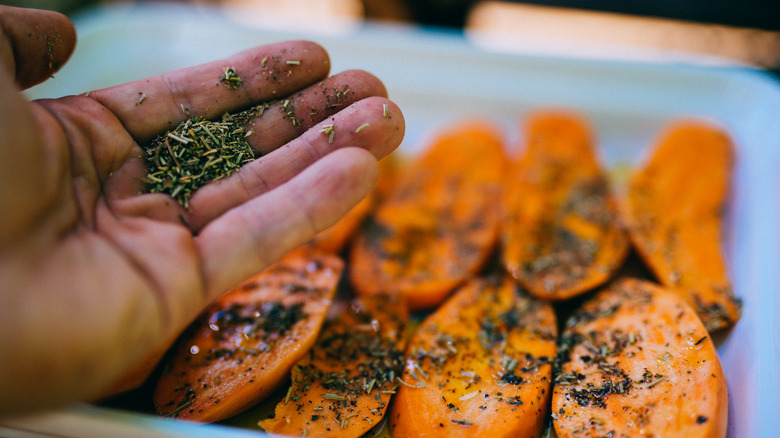What Ingredients Are In Italian Seasoning?
Dried spice blends are a staple in many home — and even professional — kitchens. They're meant to be an easy and convenient way to help cooks get a bold flavor profile from around the world without having to use tons of different individual spices.
Making a one-pan tofu Tikka masala? Get the garam masala ready (an Indian spice blend made with cinnamon, cumin, coriander, and more). Traveling to France via your kitchen? Your recipe may call for Herbes de Provence (a French blend traditionally made of thyme, basil, marjoram, tarragon, and more). But another popular spice blend was created to transport you to the olive– and grape-dotted rolling hills of Italy: Italian seasoning.
Made with a mixture of dried herbs including basil, thyme, marjoram, oregano, and rosemary (with other spices like red pepper flakes or garlic powder sometimes joining the party), the origin of Italian seasoning is hard to pin down. But one of the most popular versions is that it originated in the Mediterranean by ancient Romans and Greeks in 8th century B.C. to make cooking easier. It's a versatile spice blend that you can use for a variety of dishes — like to spruce up roasted potatoes — but it's not just for Italian or Italian-American recipes (although Italian seasoning in a hearty lasagna soup just hits the spot).
How to buy and use Italian seasoning
Once you get to the spice aisle in your supermarket, you'll probably notice tons of different brands that make Italian seasoning. It's a good idea to check the labels of each one if you have any strong preferences regarding what spices are included (like not wanting the heat of red pepper flakes, for example). If you like to make your own spice blends, you can search online for an Italian seasoning recipe that you vibe with (and adjust the ratios as needed).
While it's a popular blend to use in obvious dishes (like homemade meatballs or as an additional ingredient to amplify spaghetti sauce), Italian seasoning is a powerhouse flavor booster for a variety of recipes. Making a roasted veggie medley? Add some Italian seasoning to create an herb-packed side dish. Whipping up a simple salad dressing for a mixed-herbs salad? Adding some Italian seasoning can take it up a notch and bring the flavors together.
Italian seasoning also works really well for other Mediterranean cuisines, like Greek and Southern French, because they share a lot of the same flavor profiles. You can use it to enhance Greek lemon potatoes or to send a swordfish provencal into a tastebud frenzy. But in general, wherever you think the addition of dried herbs can level up your cooking, use your best MasterChef judgment and experiment.


